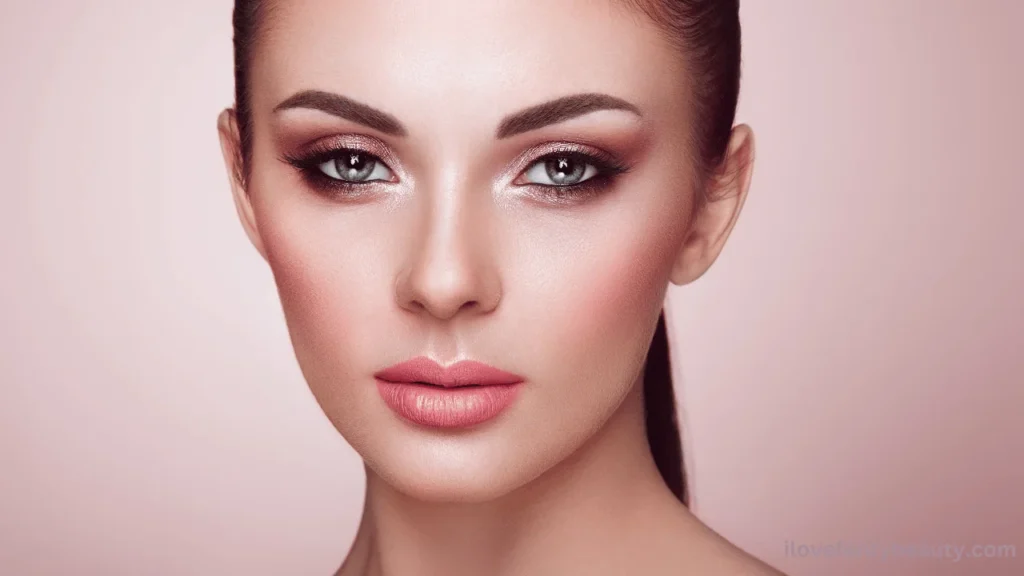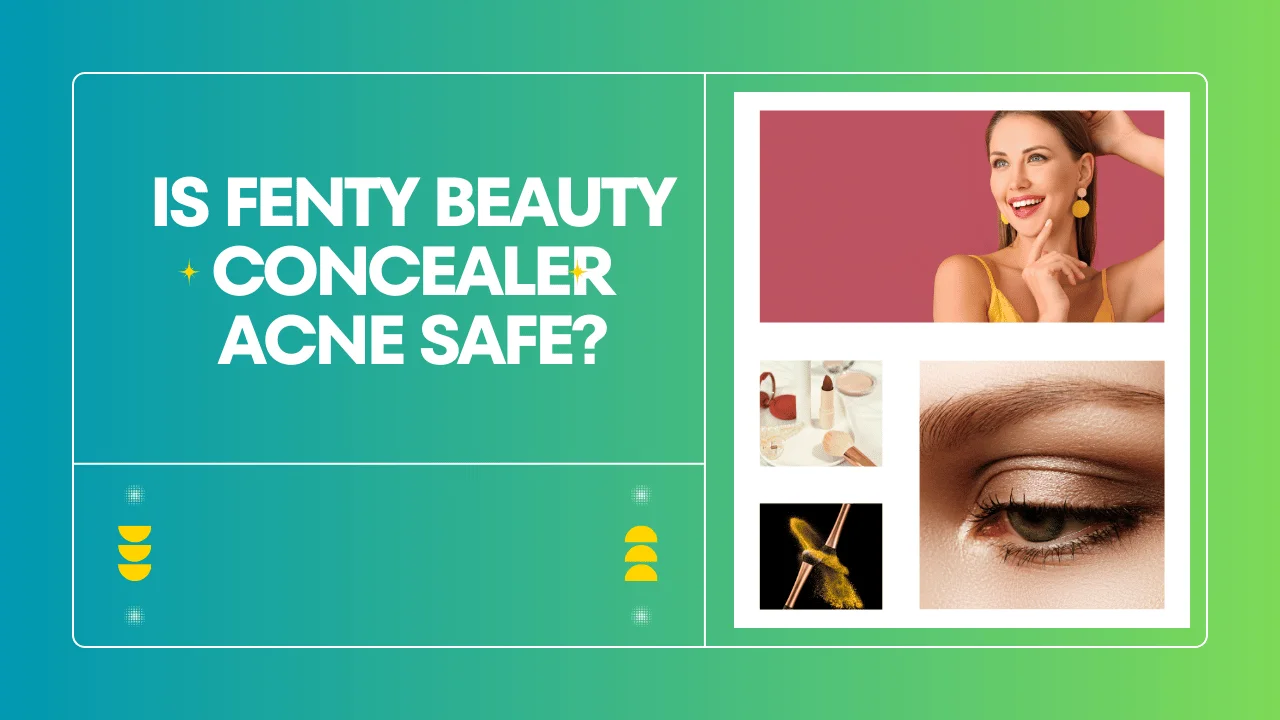Let’s face it, Rihanna’s Fenty Beauty took the beauty world by storm.
The inclusive shade range, high-performance formulas, and bold marketing made it a must-have for makeup enthusiasts everywhere. But hold on a second, acne warriors! While those flawless coverage dreams dance in your head, a nagging question lurks: is Fenty Beauty concealer safe for your acne-prone skin?
Fear not, fellow beauty warriors! This comprehensive guide will be your ultimate weapon in the battle for flawless, acne-free skin.
We’ll delve into the science behind Fenty Beauty concealers, analyze their ingredients, and decode user experiences. By the end, you’ll be armed with the knowledge to decide if Fenty Beauty is your concealer soulmate, or if a different option might be a better match for your unique skin needs.
So, ditch the frustration and join us on this journey to uncover the truth about Fenty Beauty concealer and acne-prone skin!
Contents
- 0.1 Understanding Acne-Prone Skin
- 0.2 Key Ingredients in Fenty Beauty Concealers
- 0.3 Comedogenicity Rating
- 0.4 User Experiences and Reviews
- 0.5 Tips for Using Concealer on Acne-Prone Skin
- 0.6 Conclusion
- 1 FAQ’s
- 1.0.1 Are Fenty Beauty concealers non-comedogenic?
- 1.0.2 Can Fenty Beauty concealer help to cover acne scars?
- 1.0.3 How can I prevent breakouts when using concealer?
- 1.0.4 What are some other good concealer options for acne-prone skin?
- 1.0.5 How often should I replace my concealer?
- 1.0.6 Can I use Fenty Beauty concealer to contour my face?
Understanding Acne-Prone Skin
Before we dive into the world of Fenty Beauty concealers, let’s first understand the unique challenges of acne-prone skin. This skin type is often characterized by excess oil production, blackheads, whiteheads, and occasional inflammatory breakouts.
Several factors can contribute to acne, including hormonal fluctuations, genetics, stress, and poor diet.
To keep acne at bay, it’s crucial to use non-comedogenic products. These products are specifically formulated to minimize the risk of clogging pores, which is a major cause of acne breakouts.
By choosing non-comedogenic concealers, you can help prevent further breakouts and maintain a clear complexion.
Key Ingredients in Fenty Beauty Concealers
Fenty Beauty concealers are formulated with a blend of pigments, oils, and emollients to provide coverage and hydration. While these ingredients can offer various benefits, it’s essential to consider their potential impact on acne-prone skin.
Pigments are used to provide color and coverage, but they can sometimes clog pores if not formulated properly.
Oils, while hydrating, can exacerbate oiliness and lead to breakouts in some individuals. Emollients can help to soothe the skin, but they may also contribute to clogged pores if used excessively.
Therefore, it’s crucial to carefully consider the specific ingredients in Fenty Beauty concealers and assess their potential impact on your skin.
Comedogenicity Rating
To understand the potential impact of a product on acne-prone skin, it’s crucial to consider its comedogenicity rating. This rating measures a product’s tendency to clog pores and cause breakouts. A lower comedogenicity rating indicates a lower likelihood of clogging pores.
While Fenty Beauty concealers are formulated to be gentle on the skin, it’s important to consider the comedogenicity of individual ingredients. Some ingredients may have a higher comedogenicity rating than others, making them more likely to trigger breakouts in acne-prone individuals.
It’s also important to note that individual skin chemistry and environmental factors can influence how a product affects your skin. What may work for one person may not work for another. Therefore, it’s essential to pay attention to your skin’s unique needs and choose products that are suitable for your specific skin type.
User Experiences and Reviews
The internet is flooded with user reviews discussing the impact of Fenty Beauty concealers on acne-prone skin.
Many users have praised the brand’s concealers for their full coverage, blendability, and long-lasting wear. Some have even reported that the concealers helped to minimize the appearance of blemishes and reduce redness.
However, not all user experiences have been positive. A few users have complained about breakouts and irritated skin after using Fenty Beauty concealers. These negative experiences may be attributed to individual skin sensitivities or specific product formulations.
Overall, the consensus on Fenty Beauty concealers and acne-prone skin is mixed. While many users have had positive experiences, others have reported negative reactions.
It’s essential to consider individual skin chemistry and patch test new products before full application to minimize the risk of breakouts.

Tips for Using Concealer on Acne-Prone Skin
To minimize the risk of breakouts and maximize the benefits of concealer, follow these tips:
- Clean Brushes and Tools: Regularly clean your makeup brushes and sponges to prevent the buildup of bacteria, which can contribute to acne.
- Minimal Product Application: Less is often more when it comes to applying concealer, especially on acne-prone skin. Use a small amount of product and blend it carefully to avoid clogging pores.
- Oil-Free and Non-Comedogenic Primers: Before applying concealer, use an oil-free and non-comedogenic primer to create a smooth base and help the concealer adhere better to your skin.
- Gentle Cleansing Routine: A gentle cleansing routine is essential for acne-prone skin. Use a mild, fragrance-free cleanser to remove dirt, oil, and makeup without stripping your skin’s natural moisture barrier.
Conclusion
In conclusion, Fenty Beauty concealers can be a great option for acne-prone skin, but it’s important to consider individual skin needs and product formulations.
By understanding the characteristics of acne-prone skin and the potential impact of ingredients on breakouts, you can make informed decisions about your skincare and makeup routine.
While Fenty Beauty offers a range of high-quality products, it’s essential to patch test new products and use them sparingly to minimize the risk of irritation and breakouts.
Additionally, following a gentle cleansing routine and using oil-free, non-comedogenic primers can help to create a healthier skin environment.
Ultimately, the best way to determine whether Fenty Beauty concealers are right for your skin is to consult with a dermatologist. They can provide personalized advice and recommend products that are tailored to your specific needs.
FAQ’s
Are Fenty Beauty concealers non-comedogenic?
While Fenty Beauty offers a range of products, including some that are marketed as non-comedogenic, it’s essential to check the specific ingredients of each product to determine its potential to clog pores. Individual skin reactions can vary, so it’s always a good idea to patch test new products.
Can Fenty Beauty concealer help to cover acne scars?
Yes, Fenty Beauty concealers can help to cover acne scars and other blemishes. Look for full-coverage formulas with a creamy texture that can effectively conceal imperfections.
How can I prevent breakouts when using concealer?
To minimize the risk of breakouts, consider the following tips:
Clean brushes and sponges regularly.
Use a gentle, fragrance-free cleanser.
Apply a minimal amount of product.
Choose non-comedogenic primers and concealers.
Avoid touching your face throughout the day.
What are some other good concealer options for acne-prone skin?
Some other good concealer options for acne-prone skin include:
Tarte Shape Tape Concealer
NARS Radiant Creamy Concealer
Maybelline Instant Age Rewind Concealer
How often should I replace my concealer?
It’s generally recommended to replace your concealer every 6-12 months to prevent bacterial buildup and maintain product quality.
Can I use Fenty Beauty concealer to contour my face?
Yes, Fenty Beauty concealers can be used for contouring. Choose a shade or two darker than your skin tone to create shadows and define your facial features.








